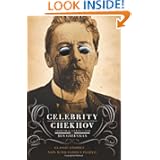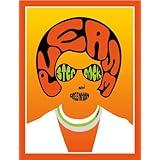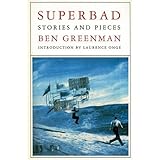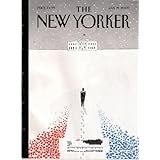I learn so much doing these interviews. It’s my greatest hope that my guests and I not only entertain, but convey a message, method or meaning of some kind with every interview.
My guest today on The Novel Road is Ben Greenman. He writes short stories of a kind seldom seen. He writes them at a level, at a height, where every word offers a great vista. Bold in his choices of medium and form, the reader cannot help but to see through his eyes.
Ben’s meanings are never lost. They can be a subtle as a feather, or as overt as a sledgehammer. No matter which, his intent is clear, arriving at a point intended.
Don’t believe me? Read the interview, then tell me you don’t have a new curiosity. A curiosity to see and learn more about this master of the written word.
Pick up a copy of Celebrity Chekhov or What He’s Poised to Do. Give, A Circle Is a Balloon and Compass Both a read. Then find a special place in your bookcase for them, because they will have already found places in your heart and mind.
Get the handmade, letter press-printed edition of Correspondences, for its art as well as content. It features the only modern bookcasing that can sneer righteously at the art on the wall.
Ben Greenman was born in Chicago, Illinois, and grew up in Miami, Florida. After attending Yale, he worked for the Miami New Times as a film critic. He moved to New York City as a freelance editor and writer. His work has appeared in Rolling Stone, Mother Jones, Time Out New York, The Forward and a plethora of other publications. He joined The New Yorker magazine in 2000, where he is now an Editor.
I’m honored to have Ben Greenman as my guest today on The Novel Road…
 |
| Ben Greenman |
Me: One of the many things I like about your humor is the breadth of devices you use to convey edges of our collective zeitgeist. Whether essay or musical, you are able to apply whatever method needed to uniquely convey your thoughts. How do you do it?
Ben: There are many kinds of writing I like, and many kinds of things I like to write: serious journalism, reporting, criticism, essays, humor pieces, fiction. Depending on the piece, depending on the project, the form follows. And then, even better, there's a little bit of interpenetration. In a "serious" book of short stories like “What He's Poised to Do”, there are humor techniques used lightly. In a humor piece, there must be pathos.
Me: To me, Celebrity Chekhov is more a view, than version of Chekhov’s stories with celebrities injected into the mix. By this I mean, due to knowledge of the substitute characters, I had the unique feeling of watching as much as reading. Did you ever worry the celebrity would overshadow the story? How did you find a balance point or did you have to?
Ben: I didn't worry that the stories would be overshadowed by the characters. They are pretty sturdy. I wanted to demonstrate that the way we read is different than the way we see our pop-culture landscape. I don't think I had to find a balance point. The method suggested one. Of course, in certain stories, with certain substitutions, the balance may have been thrown off – certain celebrities mean too much or two little at different points in time.
 Me: In a line from an essay of yours “Age Comes On” posted on Moistworks.com: “We have years of intense receptivity and then years of trying to make sense of what we received.” Has the immense amount of information available now, caused a lack of learning from the past, in favor of taking current definition as a less thought out reality?
Me: In a line from an essay of yours “Age Comes On” posted on Moistworks.com: “We have years of intense receptivity and then years of trying to make sense of what we received.” Has the immense amount of information available now, caused a lack of learning from the past, in favor of taking current definition as a less thought out reality?Ben: I think so. How could it not? So much happens in a rush now, and it's difficult just to keep up with it. Imagine reading all the tweets and blog posts released in any given day. You couldn't. I don't read much new fiction anymore, and I try to limit my receptivity to pop culture, which isn't always easy, because I want to make sure that I understand what I already have in my head. This means, as I get older, that I do more rereading. I see more old movies for the second time or the third time.
 Me: This question courtesy of Norb Vonnegut: “How will literature change when 80 percent of all books are sold on e-readers?”
Me: This question courtesy of Norb Vonnegut: “How will literature change when 80 percent of all books are sold on e-readers?”Ben: I'm not sure it will change. That's a delivery system. But look at what isn't changing, or what's changing very slowly: fear that power will be abused, frustration that we can't get through to the people we love, mortality. More is the same than is different, and those are the things that literature addresses.
Me: Lunch with you and any author you choose, from throughout history or today, and why.
Ben: Stanley Elkin, to see how he balanced the spoken and written words in his head -- so much of what he did played like a logorrheic monologue, but then there were these moments of incredible, clearly composed lyricism. Or maybe Emily Dickinson. It would be nice to get her out of the house.
Ben: That's a hard question to answer. Everyone has life experience, simply by virtue of living. I think that certain kinds of life experience feel more writerly -- travel, sexual bravery, philosophical exploration -- and that's not necessarily so. Coming to understand company culture can be great life experience for a writer if you're Stanley Bing. We mentioned Emily Dickinson before: her life experience was greatly circumscribed. Dickens, Graham Greene, Richard Price, Joy Williams, Elmore Leonard, Twain, Joseph Heller -- those are the first seven people I see on my bookshelf. Are their life experiences relevantly similar? What does life experience mean?
Me: The linkage of your short stories to a music backdrop. Does the story come first, then matched to the music or is the story inspired by it?
Ben: The story always comes first. Music is important. It can help with rhythm. It can teach you about language. But it's not a matching game. Stories move themselves along.
 Me: I’ve named Sean Ferrell, Gary Corby and Tawna Fenske as new authors to watch. Any new authors on your radar?
Me: I’ve named Sean Ferrell, Gary Corby and Tawna Fenske as new authors to watch. Any new authors on your radar?Ben: As I said, I am probably terrible these days at spotting new authors. I am reading backward through time, and it would seem stupid to mention a few people at the expense of the others. Many writers are always doing many good things. In general, I encourage reading around as widely and as unsystematically as possible.
There's not much reason for a canon, at least among living writers, is there? It'll be changed and changed again several times before it settles, so why pretend that there's any kind of verifiable critical estimation of authors. Authors write. Readers read. Meaning glows, to a greater or lesser degree. Time passes.
 Me: You get a wish. Whatever you choose is changed or held constant. What would it be and describe the change, if any?
Me: You get a wish. Whatever you choose is changed or held constant. What would it be and describe the change, if any?Ben: I'd wish for more curiosity, on everyone's part, always.
***********************************
I’d like to thank Ben for doing this interview.
He says so much, so incredibly, with so few words.
Words that reflect…
 |
| Correspondences |


This question sent to me for Ben by Jeff Hall:
ReplyDelete“If I could ask an accomplished short story writer one question.... Probably be this one:
As a short story writer my greatest struggle is not deciding what to put in but rather what to leave out. My 5K shorts typically start out as 12K novellas that I have to pare and trim ad nauseum. Do you find the process works best if you give yourself free reign and then whittle the result down to a manageable size? Or do you keep your stories focused and directed as they are birthed so that the initial product is of a workable size?”